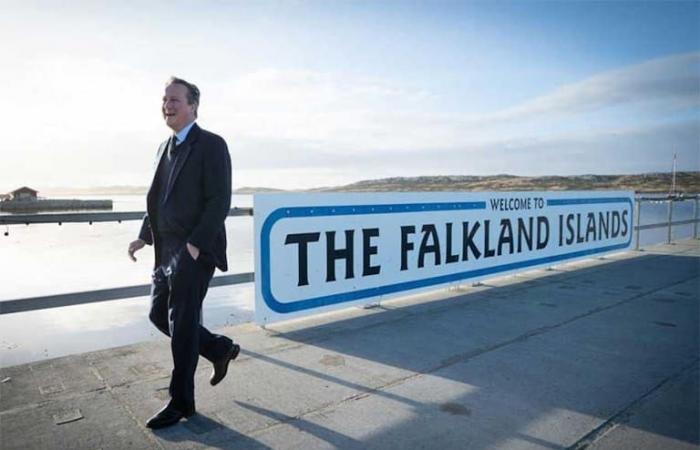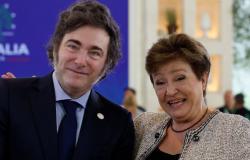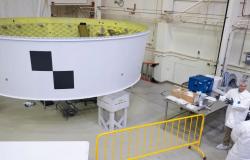
Hear
This Friday is a holiday in Falkland Islands. In some way, the South Atlantic War and the landing of Argentine troops on the islands on April 2, 1982 gave the islanders an identity and a search for autonomy that they did not have until then. For these reasons, they made June 14 the most important day on their calendar: it is their national day because they commemorate the “Liberation Day”.
It all began 42 years ago, and after 74 days where the Argentine troops fought with courage, when the Argentine capitulation took place under the command of General Mario Benjamin Menendezwho agreed to a cessation of hostilities, before Major General Jeremy Moore. The bloodiest fighting that took place in the last 72 hours of war was left behind; first on Mounts Longdon, Two Sisters and Harriet, and then the British troops advanced on Wireless Ridge, Mount Tumbledown, Mount William and finally Sapper Hill.
Just as April 2 goes completely unnoticed by the local population, June 14 is a date of celebration to remember their fallen heroes who gave their lives so that its inhabitants could recover sovereignty, and they evoke it with a parade in the streets main events that go from the Cathedral to the 1982 Liberation Monument, including a formal greeting in front of the Government House. Ross Road Avenue is dressed up in celebration, with British and island flags – locals have their own national symbols – that decorate the entire route from Philomet Street to the Marine Corps Memorial.
Through an event that was broadcast live to all corners of the archipelago, last Wednesday the interim governor Dave Morgan He appeared before the Legislative Assembly and made his annual speech, which is presented as the “State of the Nation.” Morgan spoke there about fiscal growth, the improvement in the quality of life of the islanders, the improvement in tourism after the pandemic, fishing, education and highlighted environmental care as a priority. Of course he also talked about the British Chancellor’s recent visit to Port Stanley, an unusual event for local politics. Morgan highlighted: “For the first time in 30 years the Islands welcomed the Foreign Secretary of the United Kingdom, Lord Cameron. His visit reinforced the mutually beneficial relationship between the Falklands Islands and the United Kingdom. He was able to meet our community, learn first-hand the issues about our relationship with Argentina, understand our environmental and economic concepts and our future aspirations.”
Cameron’s visit to the islands focused his attention on the Argentine reaction and it did not go down well when the chancellor Diana Mondino posted on his X account that he “thanked Cameron for the visit to Argentina.” A local legislator said that day that “Argentines really need to have new scripts for their teleplays,” taking the minister’s ironic comment in a bad way. Cameron also took the opportunity to publicize his visit to Great Britain as a seductive message to the Conservative Party. He managed to have photos of him and images of him walking along the coast of Puerto Argentino and the tribute to him at the Monument to the Fallen published in all the British media. But during his diplomatic visit, which was historic for island politics, he received several requests and questions. The most important was about the Argentine president’s sayings, Javier Milei, that he had “a plan to recover the islands” after an event in Tierra del Fuego with American General Laura Richardson. Milei stated at that time: “The best resource to defend our sovereignty is the alliance with the United States.”
Without naming the Argentine leader, Morgan explained: “Lord Cameron also clearly reaffirmed the United Kingdom’s commitment to the Islands, as long as the people of the Falklands want to remain part of Great Britain.” He thus highlighted Cameron’s commitment to respect the islanders’ right to self-determination and added: “Together with the United Kingdom and other Overseas Territories we signed a joint declaration for the creation of a modern partnership for a Stronger British Family, which deploys shared democratic values and respect for Human Rights, further reaffirming the close relationship between the United Kingdom and the Overseas Territories.”
According to some journalistic reports, in the meeting with the chancellor he indicated that they should not be worried and that today they do not see anything “certain or that generates immediate concern”, especially because “the Argentine government has to recover its ailing economy and the Islands are not a priority.” Although these sayings were not in any official communication.
This national date, which independently identifies the islanders even above their relationship with the United Kingdom, is very important for them because 11 years have passed since the self-determination referendum of the Islands where the inhabitants decided to be an Overseas Territory of the United Kingdom. , thus gaining autonomy in many of the decisions. The war had frozen relations with Argentina, although there was an attempt at rapprochement in 2016 when the then vice-chancellors of the two countries, the Argentine Carlos Foradori and the British Alan Duncan, signed a joint declaration seeking to improve the bilateral relationship. and “remove all obstacles that limit the economic growth and sustainable development of the Malvinas Islands,” among other diplomatic aspects.
But that agreement was annulled by the Argentine Foreign Ministry during the government of Alberto Fernandez. At that time the president of the Legislative Assembly, Leona Roberts, said in a statement: “It is very disappointing that Argentina has made this decision, but it is not unusual. Living in the Falkland Islands, we are unfortunately very used to Argentina failing to comply with its agreements.” And he added: “Discussions about our sovereignty are non-negotiable. “We remain committed to being part of the British family, living in freedom under the government of our choosing.”
More than four decades after the end of the war, the scenario changed considerably. The economic prosperity with a GDP similar to that of the Principality of Monaco, the protection with the British armed forces based in Mount Pleasant and the political autonomy achieved by the islanders by mutual agreement with the United Kingdom, makes them celebrate their Liberation Day more confident and secure about their future, much more than before the war broke out.





